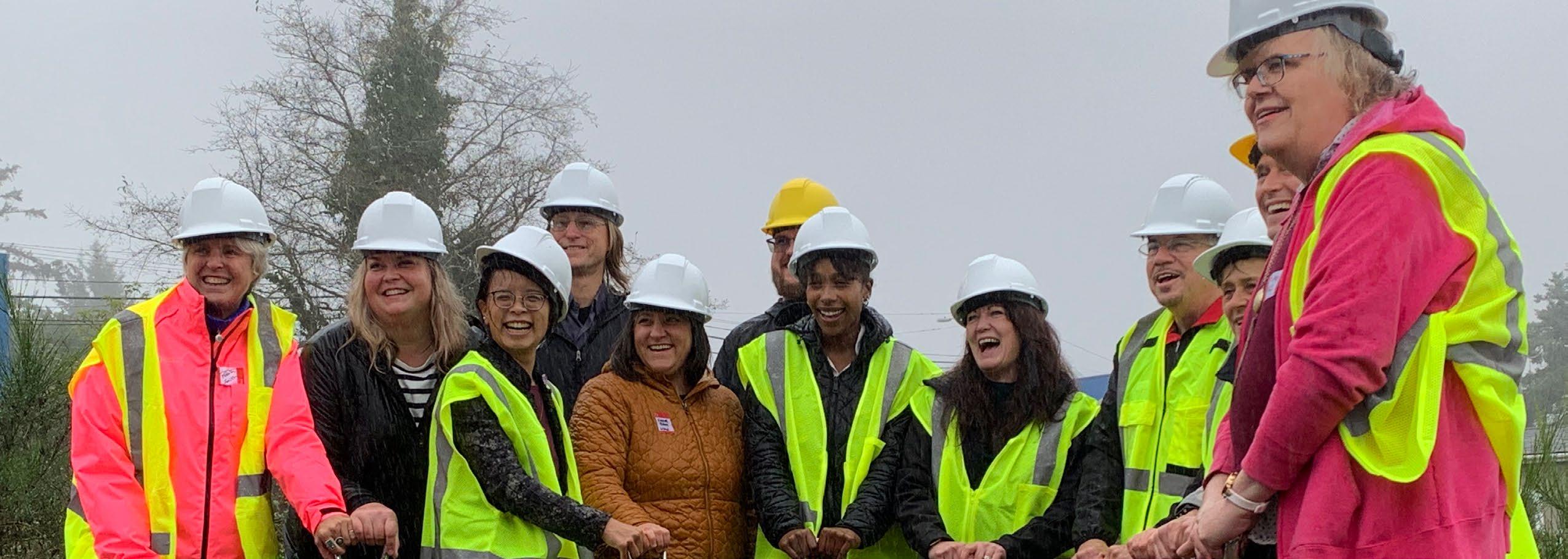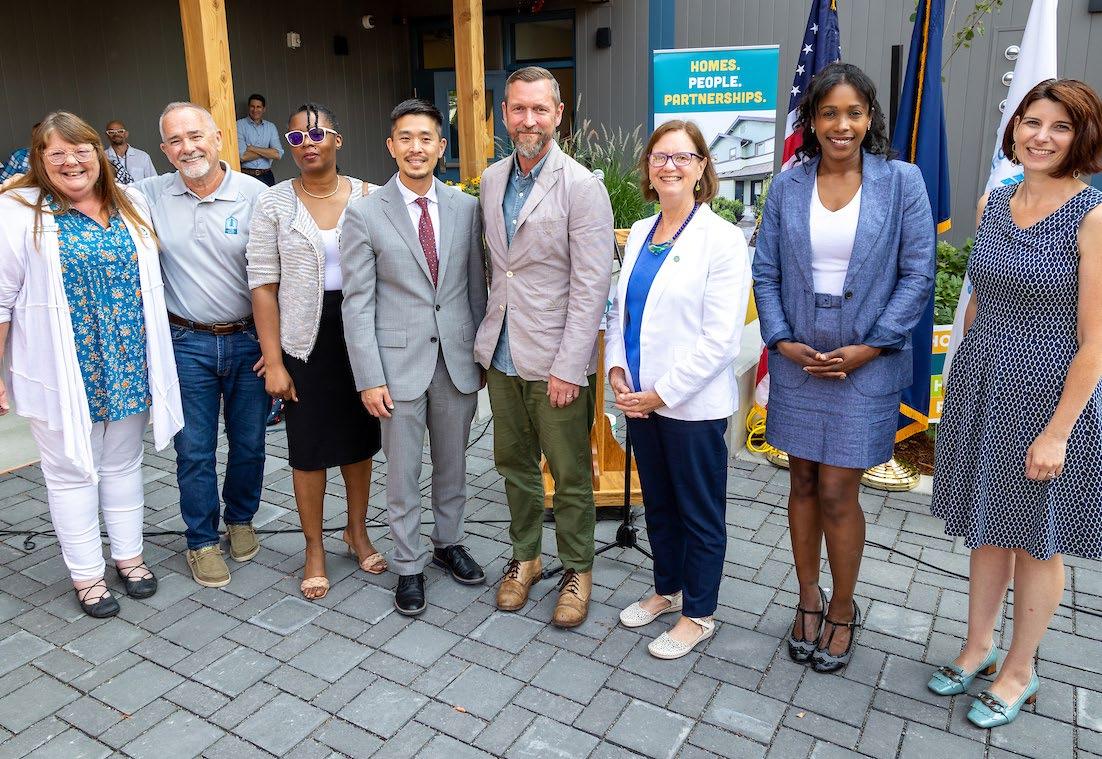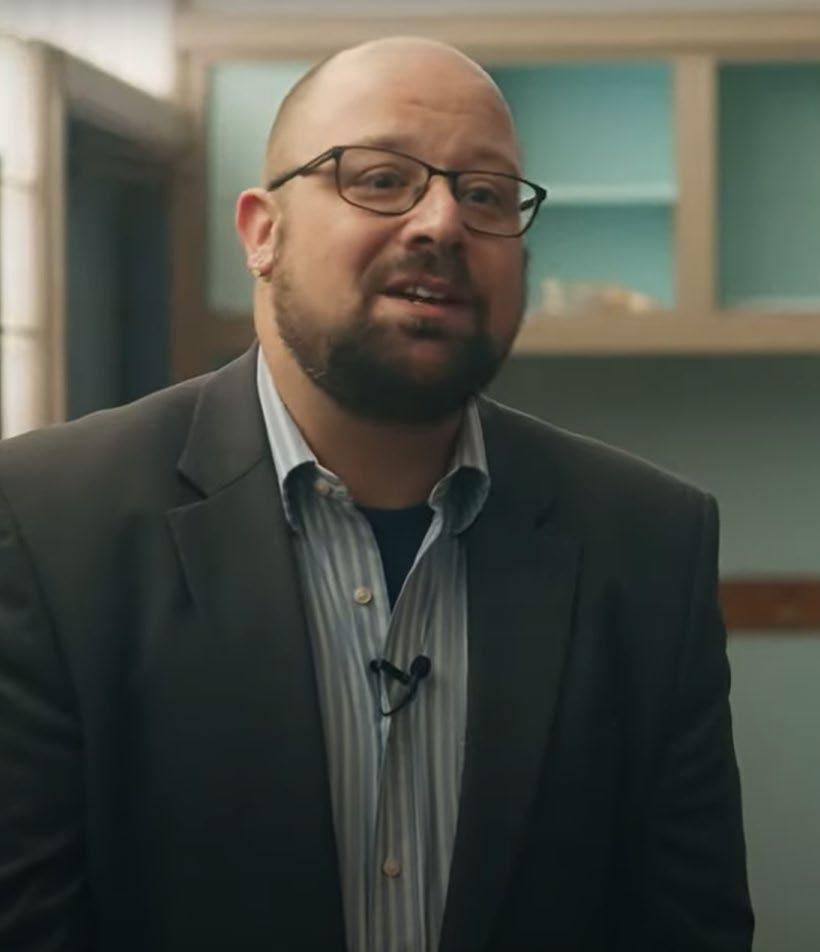
5 minute read
Community Voice: The Stulls
The Stulls of Hermiston are like any other family, trying to raise their two kids ages 7 and 10 in the community where they grew up, while juggling their careers. And like many families, they’ve had to do so while living in a home that needed significant upgrades.
“Our old house had icicles dripping down the sides as the heat was leaving through the roof,” Serenity Stull said.
Thanks in part to Oregon Housing and Community Services’ (OHCS) Manufactured Home Replacement Program, the Stulls were able to replace their 1984 doublewide with a Northwest Energy Efficient Manufactured Housing Certified Home, known as NEEM, purchased from Oregon Trail Homes in Hermiston. It’s the first manufactured home to be replaced and occupied that comes as a result of efforts by the Umatilla Electric Cooperative (UEC) and state and federal agencies.
UEC collaborated with legislators and community action agencies to create manufactured home replacement legislation, signed by the governor in 2020 and now administered by OHCS, which provides a supplemental “gap” loan that is fully forgivable if the occupant stays 10 years. Based on household income and other criteria, this loan with 0 interest and no payments required helps make the new home affordable by offsetting a significant portion of the cost.
“It’s a wonderful program and it’s worked well for us,” Serenity Stull said. “We can continue to grow on property we own, without having to move or build a new home.”
The new home is far more comfortable and healthier, compared to their old home with single-paned windows and minimal insulation and air sealing, she said. The new home keeps an even temperature and keeps out dust from nearby fields.
“You can visually see the efficiency compared to the home we had,” she said.
OHCS hopes to continue to hear positive stories like the Stulls’.
“Housing is a critical determinant of health outcomes, economic opportunity and social mobility,” said OHCS Director Andrea Bell. “But rising housing prices often makes the dream of owning a quality home feel out of reach. That is an all-too-common experience. We are proving that through collective and collaborative action, we can achieve positive results that are most meaningful for the people of Oregon.”
Community and partner engagement
OHCS leadership and staff find a number of ways to engage with stakeholders and partners to collect input about policies and programs. Each division hosts quarterly partner calls or information sessions to inform key policies and programs, along with hosting standing forums such as the Oregon Statewide Unhoused Response and Recovery Network and the Agricultural Worker Housing Facilitation Team. OHCS staff attend conferences, roundtable discussions, tours, and events in communities that offer rich opportunities for input. Staff also participate in interagency venues such as Regional Solutions, the Oregon Veteran Housing Network, and bilingual Community Connection sessions hosted by OHA. These venues maximize opportunities for collaboration to achieve greater outcomes for Oregonians.
In April and May, OHCS hosted a robust set of focus groups and town hall events focused on understanding needs of the 2020 wildfire survivors to develop a Community Development Block Grant-Disaster Recovery Action Plan for HUD resources. OHCS held 25 meetings with local governments, organizations working on fire recovery, and fire survivor focus groups, including one in Spanish, and five town halls, including a bilingual one to improve connections with Spanish-speaking wildfire survivors.
Housing Oregon hosted the annual Industry Support Conference in September, bringing together hundreds of people and organizations across the housing continuum to network, brainstorm ideas, share lessons learned, and get the latest updates on all things housing. OHCS staff attended and facilitated many sessions relating to key OHCS programs.
OHCS co-sponsored the North Coast Housing Summit held in Seaside in early December with a variety of federal, state, county, and other local leaders, as well as private developers. The summit highlighted challenges and opportunities specific to North Coast communities, including land use and housing financing in Clatsop, Tillamook, Lincoln, and Columbia counties. Given the positive response to the summit, OHCS hopes to participate in more summits throughout the state in 2023.
IN THE COMMUNITY
54 groundbreakings, tours and grand openings

Racial impact considerations in rulemaking
House Bill 2993 (2021) emphasized the need to engage with all communities impacted by a rule change and report to the Secretary of State about those impacts. This was the state’s first racial impact statement for rules, and OHCS led the charge on implementation.

Focusing on historically marginalized communities, with emphasis on women and people of color, OHCS engaged and provided informed reporting on the racial impacts of all proposed rulemaking to their communities and available resources. OHCS developed a Rules Engagement Matrix and Racial Equity Statement Toolkit to support rulemaking conversations and planning after extensive internal design and approval from OHCS’ Equity Council made up of agency leadership. The Rules Engagement Matrix and Racial Equity Statement toolkit were duplicated by numerous other state agencies and will be a presented nationally during the Administrative Codes and Register (ACR) 2023 summer conference. Rulemaking is an important aspect of public policy and, embedding equity in that process promises program improvements in how Oregonians access services across the housing continuum.
Affordable Housing Development
1,219 homes (units) built and able to be occupied
Legislative advocacy
Developing our 2023 legislative agenda
In early May, OHCS released its Draft 2023 Legislative Agenda online through a memo and webinars focused on the agency’s Affordable Rental Housing, Homeownership, and Housing Stabilization divisions. Following the webinars, the agency sought stakeholder feedback through two surveys, one focused on the entire draft legislative agenda and one focused on the Training and Technical Assistance (T&TA) investment, as well as three listening sessions specific to T&TA. Thanks to partner input, OHCS identified themes that include the need for flexible funding, support with capacity building, challenges due to rising costs of development, support for rural communities, and more. The agency created documents summarizing feedback related to the full agenda and T&TA (Spanish language summary). This summary document highlights how feedback was incorporated into specific areas of the 2023-25 Agency Request Budget. OHCS brought forward a budget of over $775.6 million in investment requests to address housing stability and community prosperity. Balancing the needs of Oregonians experiencing homelessness with addressing chronic supply shortfalls, the biennial budget is more than double any request ever put forward by the agency. In early 2023, Governor Tina Kotek introduced her recommended budget with more than $1.46 billion to address housing solutions. The need is only growing. State investments are vital and must increase to help Oregonians weather the upcoming storm.
Federal advocacy
OHCS has established national recognition at many levels, including among elected officials and their dedicated staff. In 2022, the Government Relations team hosted 12 briefings for Congressional staff, met with key legislators and their teams in Washington, D.C., informed federal bills, and supported Executive Director Andrea Bell in testifying before the Senate Finance Committee after months of lobbying for a hearing on housing and the role of tax credits and Private Activity Bonds.
2022 Investments
Throughout the COVID-19 pandemic, OHCS has seen the typical legislative cycle punctuated by Emergency Special Sessions, Emergency Board meetings, significant staff growth, increased media attention, and record funding levels. In the 2022 Oregon Legislative Session, OHCS saw continued historic investments. OHCS received $300 million in funding (via House Bill 5202) to address Oregon’s housing crisis in light of COVID-19related challenges.

OHCS investments in state funds for the ‘21-23 biennium (in millions)
Investment for land acquisition for affordable housing, $10
Manufactured housing parks acquisition, $20
Developing affordable homes for purchase, $20
Homeownership support, $15
Homeless services, $80.5
Developing affordable rental housing, $35
Preservation and improvement of affordable housing, $65 Affordable housing development funding gaps, $50
“One of the things that’s both exciting and also heartbreaking is the desperate need for housing. Most of housing authorities’ current units were built in the 70s-80s. Since then, there hasn’t been a lot of development and the community need has grown dramatically since then. So there’s a lot of opportunity on the horizon for new developments because there’s a lot of political will on the South Coast region for trying to get affordable housing built. Ultimately, we all deserve to have a safe place to be where we have a roof over our heads and our basic needs are being met.”
- Matthew Vorderstrasse, Executive Director Coos Curry Housing Authority








